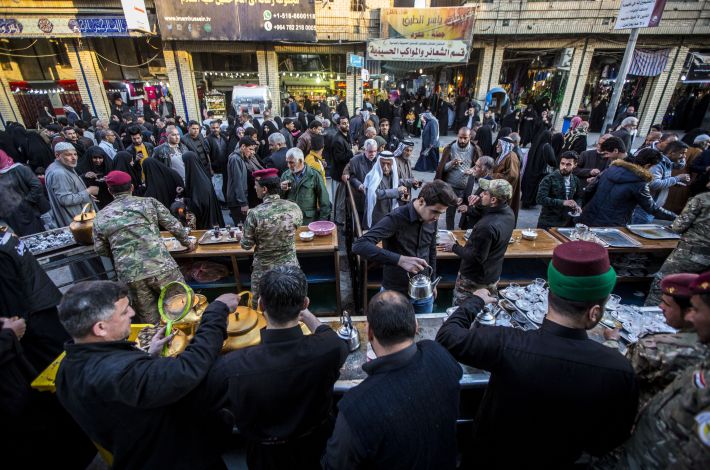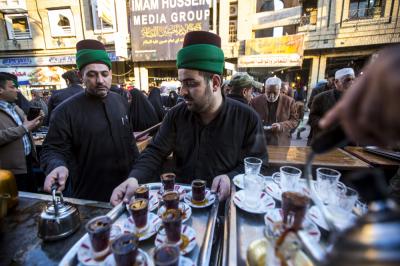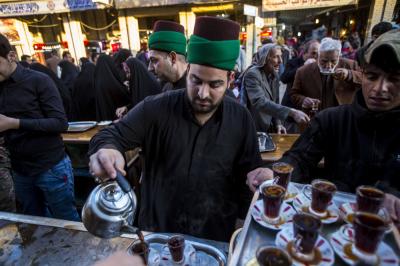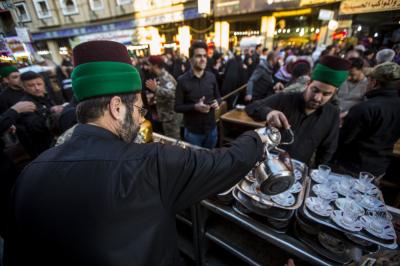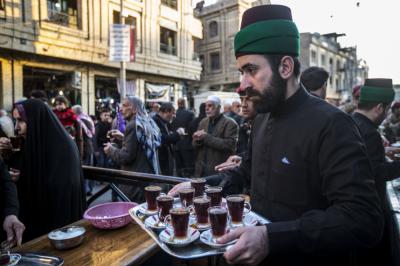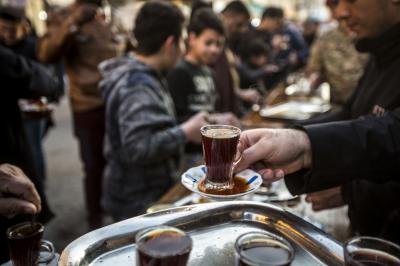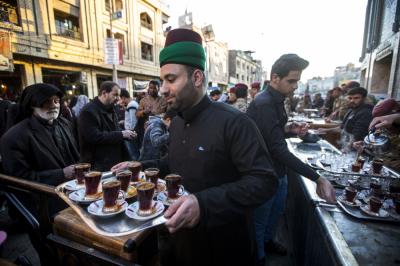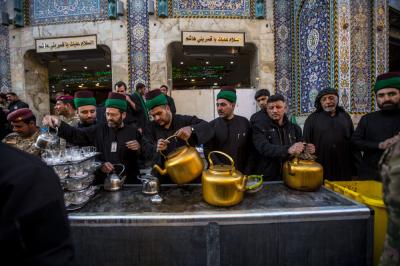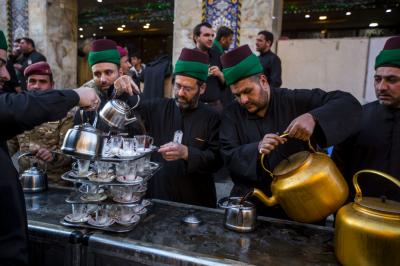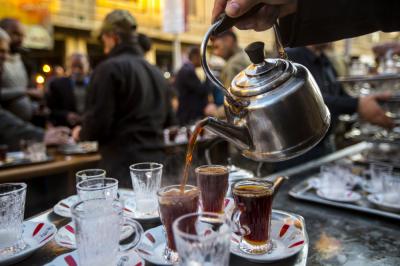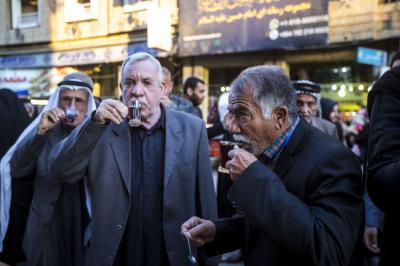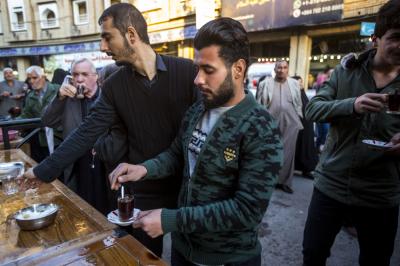This service condolences activity begins with the martyrdom anniversary of Lady Fatima Az-Zahra (peace be upon her) according to the second narration we are recalling these days, which is called the second Fatimi sorrows season. So they compete to this service that has great meaning. And we see the visitors rush to take tea from this table presented by Alawis from the side of the shrine of Aba al-Fadl al-Abbas (peace be upon him). And despite its simplicity, this activity has a great turnout because it comes from the vicinity of a holy place, and provided by the Sayed servants of the holy shrine and a number of volunteers. The visitors comes to it after performing their Ziyarat and prayers rituals to drink the tea provided with the distinctive Alawi hospitality.
It is noteworthy that a number of Sayed are honored to serve the shrine of Aba al-Fadl al-Abbas (peace be upon him) belonging to the Division associated with the General Secretariat of the al-Abbas's (p) holy shrine called (Division of Sayed servants), which is responsible for doing many activities, so their work and duties doubled during the seasons of Ziyarat, especially the martyrdom anniversaries of Imams of Ahl al-Bayt (peace be upon them), including the anniversary of the martyrdom of lady az-Zahra (peace be upon her). And they have a special program for reviving this occasion, such as the establishment of a condolence Council or participation in condolence processions, some of which are service processions. Sometimes they are found inside the sanctuary and sometimes outside, wearing their known traditional cloth, which gives more spirituality and tranquillity for the visitor.
